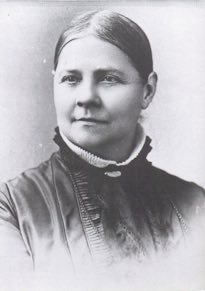As an orator and an editor, Lucy Stone won innumerable converts to the cause of women’s rights. Growing up on the family farm, she learned the difficulties women faced. Her mother’s hardships distressed her, and her father ridiculed Lucy’s desire to attend college.
At the age of twenty-five she entered Oberlin, a pioneering co-educational college. She supported her studies through teaching and housework until her father at last relented and gave her some assistance. Her study of Greek and Hebrew convinced her that crucial passages in the Bible (those declaring woman inferior) had been translated wrongly. When she graduated from Oberlin in 1847, Lucy Stone became the first Massachusetts women to earn a college degree.
She was a gifted public speaker, and a dedicated abolitionist. Soon she was appointed a lecturer for the American Anti-Slavery Society. Her natural eloquence drew large crowds, though she often had to face hostility. In 1850 she helped organize a women’s rights convention in Worcester, Massachusetts. There, at the first “national” convention, Lucy Stone delivered a speech on women’s rights that converted Susan B. Anthony to the cause. When she married Henry Blackwell (brother of Elizabeth Blackwell) Lucy Stone kept her own name, thus coining the phrase “Lucy Stoner” to describe a married woman who retains her maiden name. Lucy Stone took the lead in organizing the American Woman Suffrage Association. This group, considered the most moderate wing of the women suffrage movement, conflicted with Stanton and Anthony over policy and tactics.
Lucy Stone and her husband founded and edited the organization’s weekly newspaper, The Woman’s Journal, which was considered “the voice of the woman’s movement.” Lucy Stone spent her lifetime battling for women’s rights and inspiring others to join her cause.

